Saturday Night Fever (1977)
“You make it with some of these chicks, they think you gotta dance with them.”
|
Synopsis: |
|
Genres, Themes, Actors, and Directors:
Response to Peary’s Review: Indeed, “dancing gives him his only fulfillment” — though “he senses that it can’t last forever,” and “across the bridge is Manhattan — the promised land.” Peary asserts that the movie’s theme “is that every person has the talent to ‘make it,’ to escape the neighborhood where there are no opportunities; all anyone needs is drive and opportunities” — and for “Travolta and Gorney, opposites who get serious about each other,” the “disco’s upcoming dance context [is] their springboard to the big time.” Unfortunately, the “film is shallow,” but Peary argues that “Travolta is electrifying, whether getting dressed in his room, wiggling down the street: … trying desperately to express himself in conversation, making love, or, of course, putting on an amazing display on the dance floor.” He adds that the “disco score, featuring popular Bee Gees songs, is super,” and points out that the film is “stylishly, feverishly directed by John Badham, who isn’t ashamed to explore Travolta’s sexual appeal.” Peary elaborates on Travolta’s breakthrough big-screen performance in Alternate Oscars, where he names him Best Actor of the Year and writes: “There was doubt that Travolta could make the transition from television, where he’d built up a following as Vinnie Barbarino in the high school comedy Welcome Back, Kotter.” However, “in his first movie lead (he’d been funny in a secondary role in Carrie) he became the sensation of the year, a magazine cover boy and sex symbol.” He points out that Travolta — who is “captivating” — is “great out on the dance floor, making sexual moves to the Bee Gees that have the females in the 2001 [Club] sighing: … but he’s just as much fun to watch while strutting down the street as if he knows everyone is watching, or gazing at himself in the mirror — a moment of narcissism for a young boy without much self-esteem.” He highlights how Travolta “has sweet, puppy-dog eyes, a sheepish face, and a delivery that starts out aggressive but ends up sounding hurt or defensive, as if he expects to be put down”; and he smiles “appreciatively if he gets a compliment, as when his boss gives him a raise: … and when Stephanie [Gorley] admits he’s interesting and even intelligent.” In his review for DVD Talk, Stuart Galbraith IV argues that:
Interestingly, in the original magazine article upon which this script was based — later acknowledged by the author to be made up — the lead character (here named Vincent) daydreams explicitly of disturbing violence.
Fortunately, this isn’t how Tony is portrayed on-screen — though his buddies’ crude and immature behavior is often challenging to watch, as is Tony’s rejection of his original dance partner (Donna Pescow), who is eventually subjected to highly disturbing treatment. Indeed, women aren’t exactly portrayed in the best light in this film. While Gorney — who Peary claims “can’t act” — refreshingly stands up for herself time and again, she’s referred to repeatedly as “practicing to be a bitch” and is given a hard time for being a “social climber.” Other young women (i.e., Denny Dillon’s “Doreen”) clamor to dance with, sleep with, or simply be nearby Tony: … while the women back at home (Tony’s mother and grandmother) merely fuss over food or show deep distress when Tony’s priestly brother (Martin Shakar) has a career crisis. Another subplot — involving neurotic Bobby (Barry Miller), who has gotten his girlfriend pregnant and is seeking advice from everyone around him on what to do — is intentionally meant to mirror James Dean and Sal Mineo’s relationship in Rebel Without a Cause (1955), though in a less nuanced and more distributed way. Ultimately, Saturday Night Live is a film to watch for Travolta’s dynamic performance and as a snapshot of a certain era — not because of any particularly profound insights it offers into the human condition. Be forewarned that you will get “Night Fever” stuck in your head for hours (if not days) after watching this flick. Notable Performances, Qualities, and Moments: Must See? Categories
(Listed in 1001 Movies You Must See Before You Die) Links: |
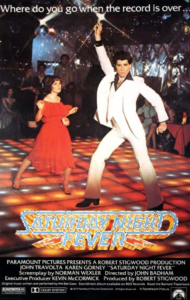
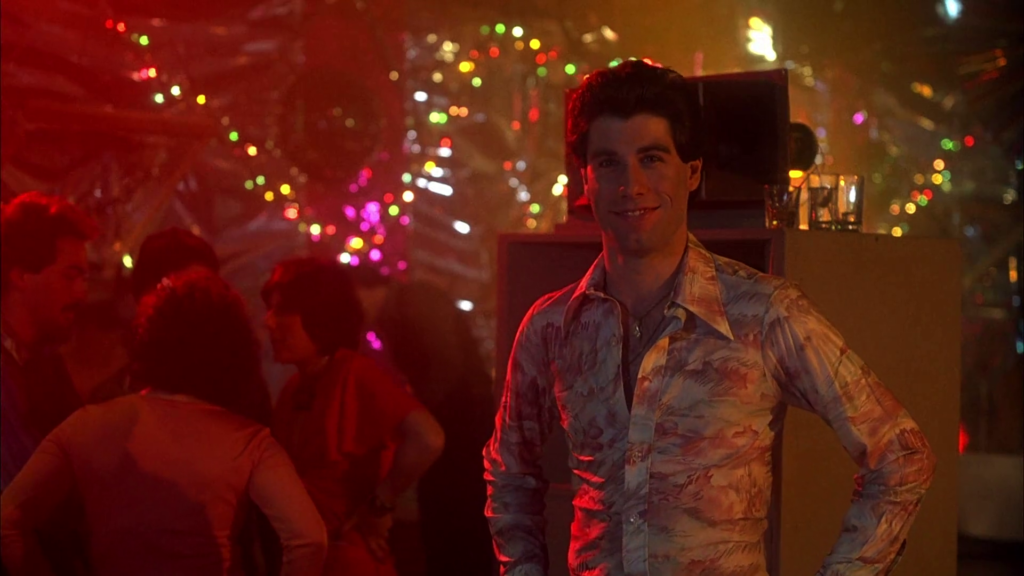

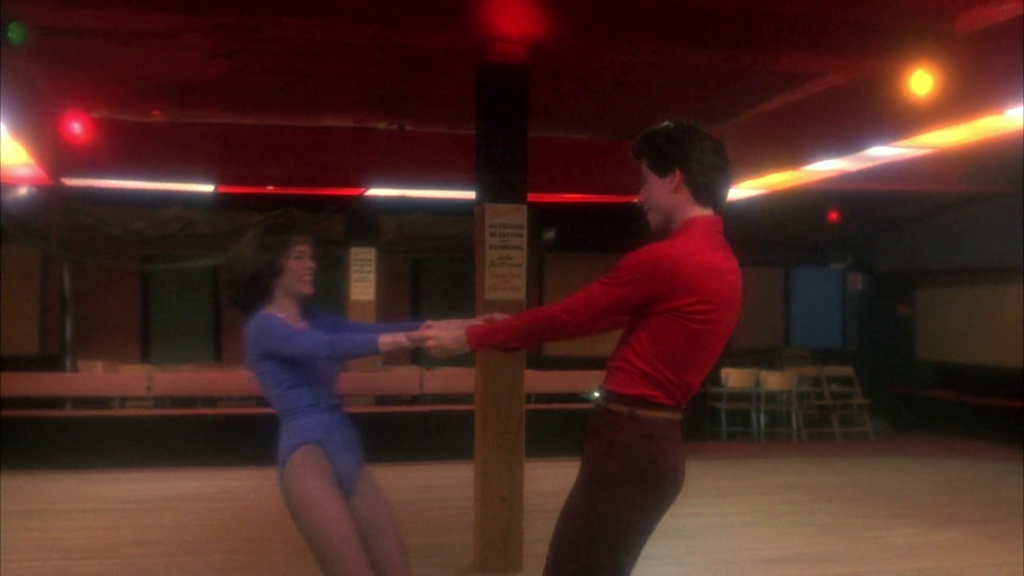
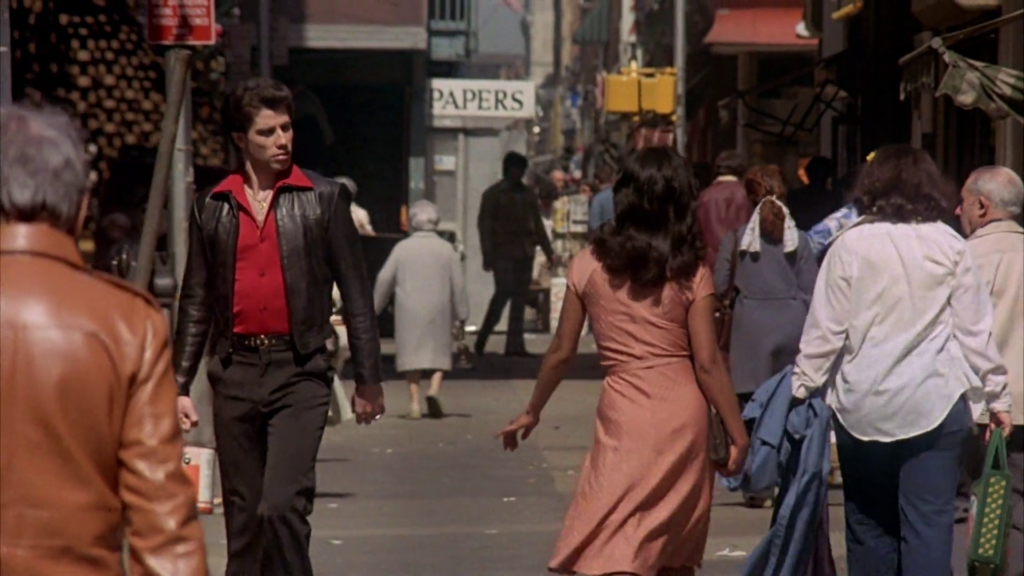
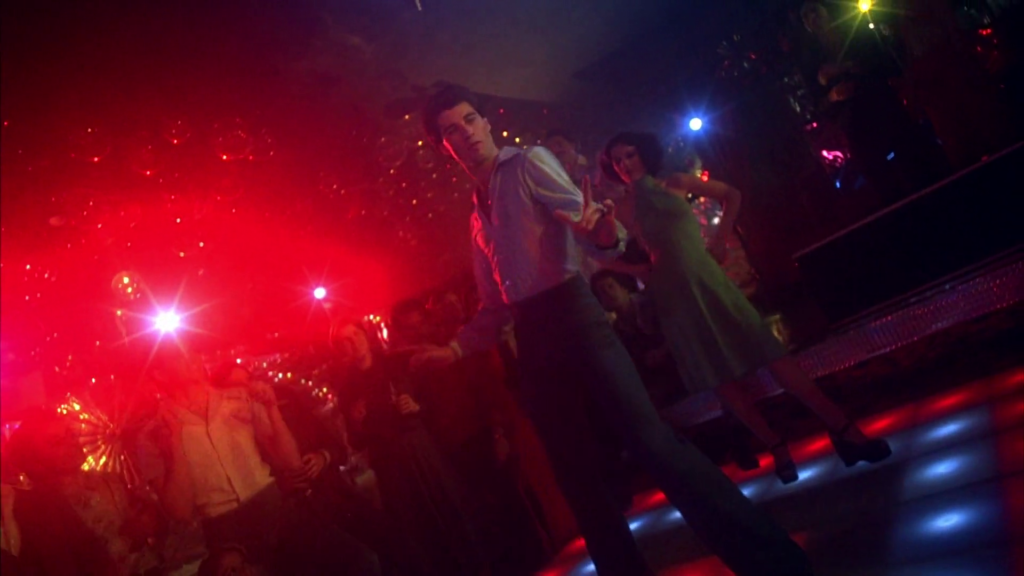
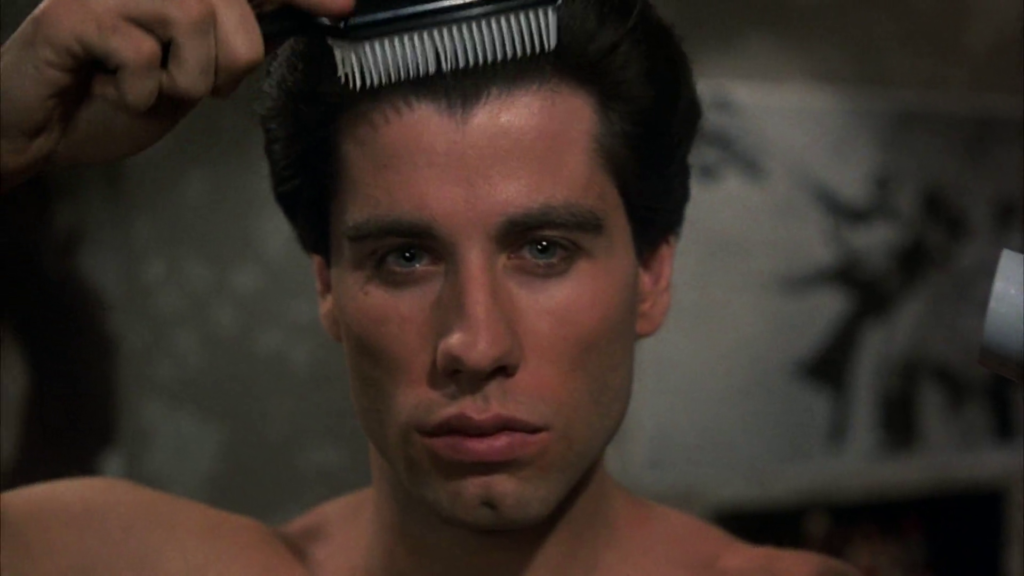
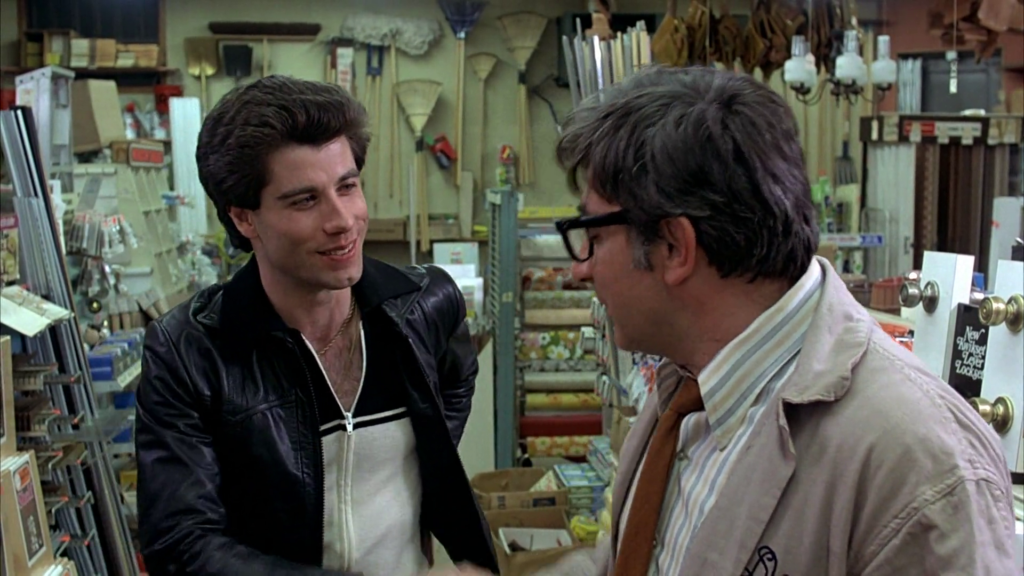
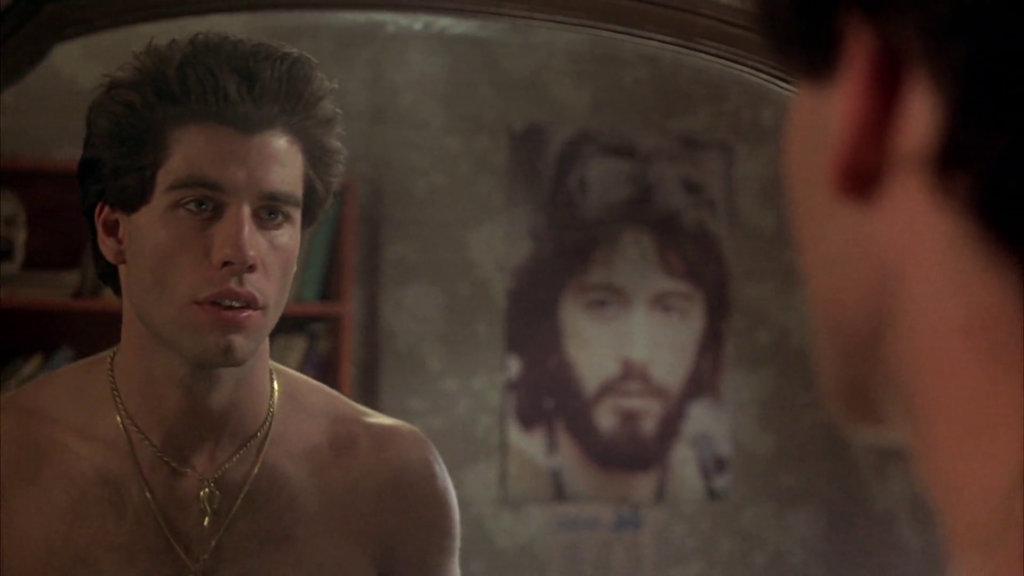
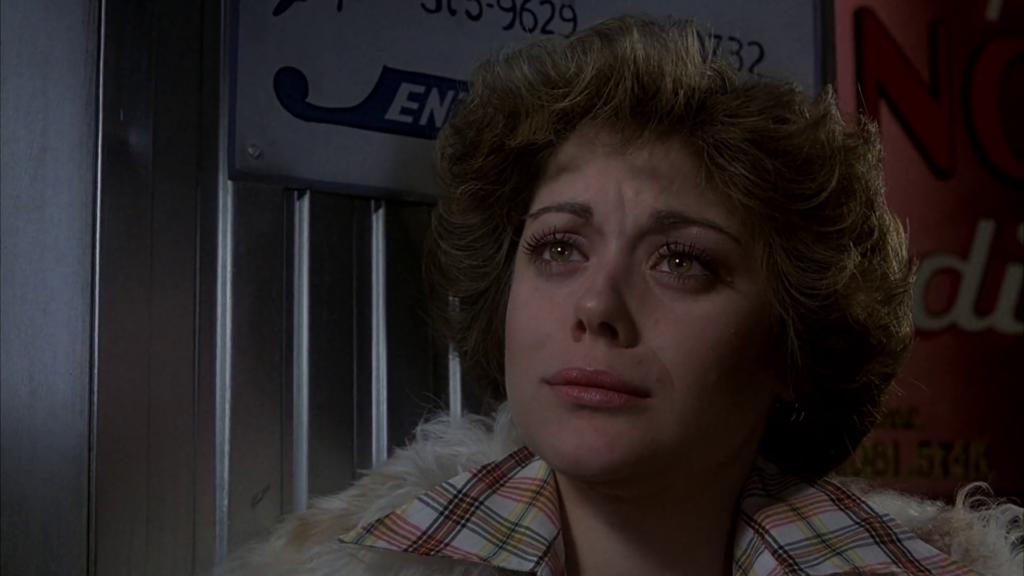
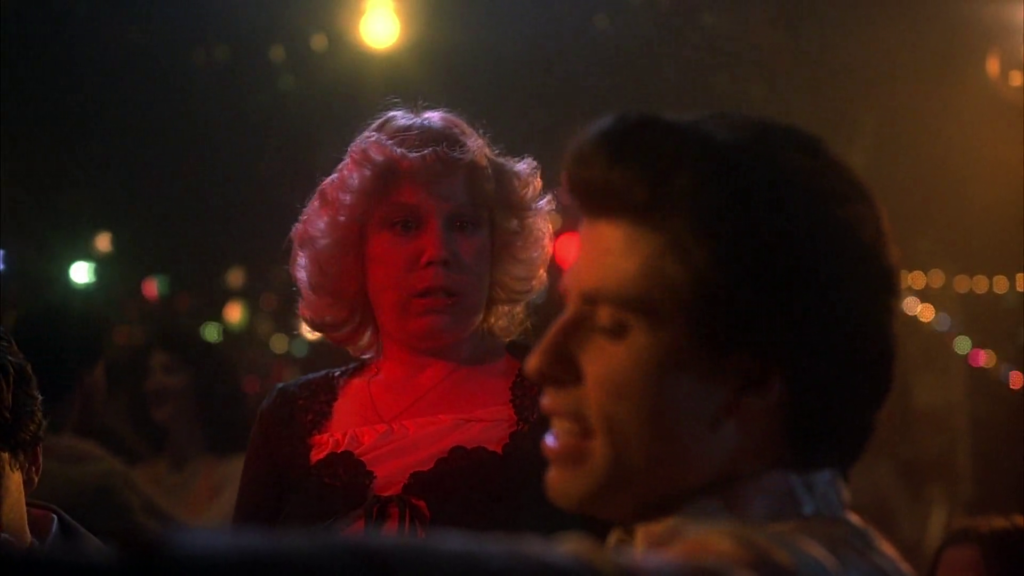
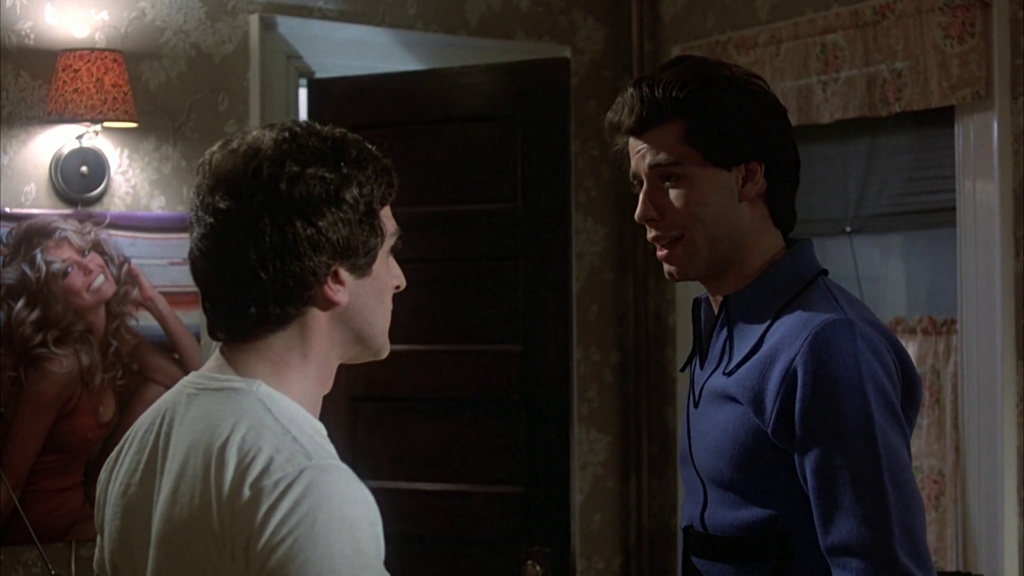
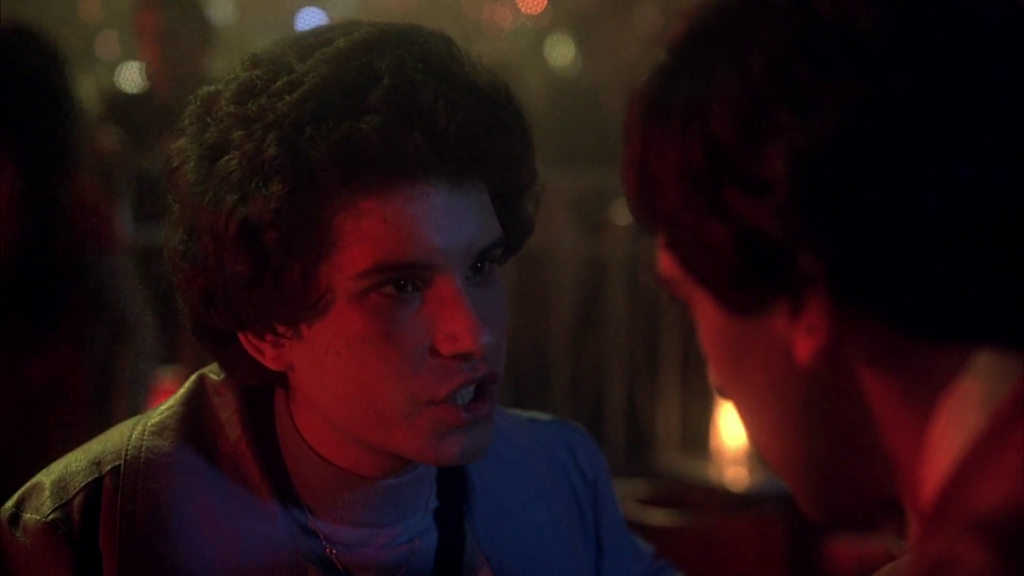
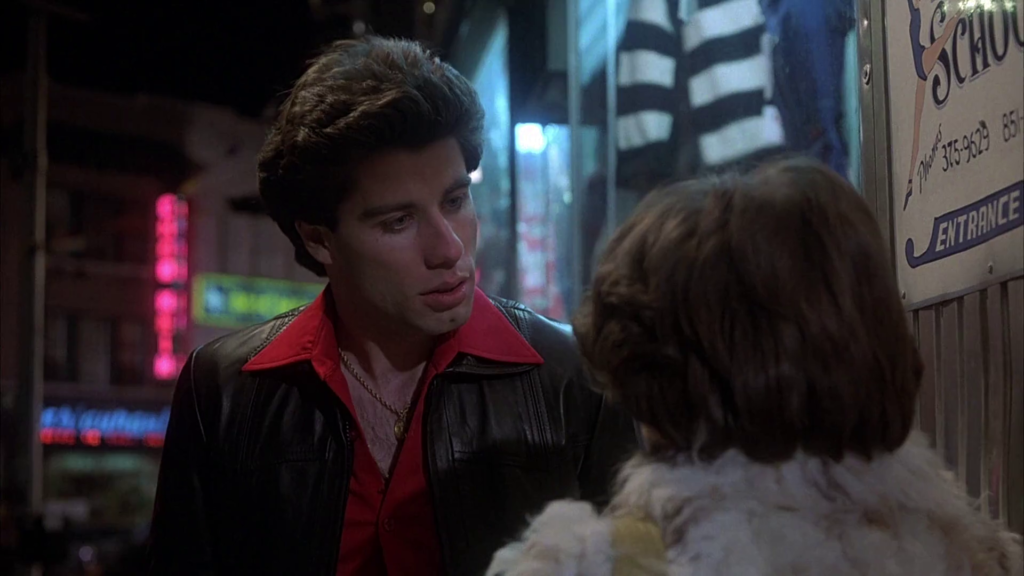
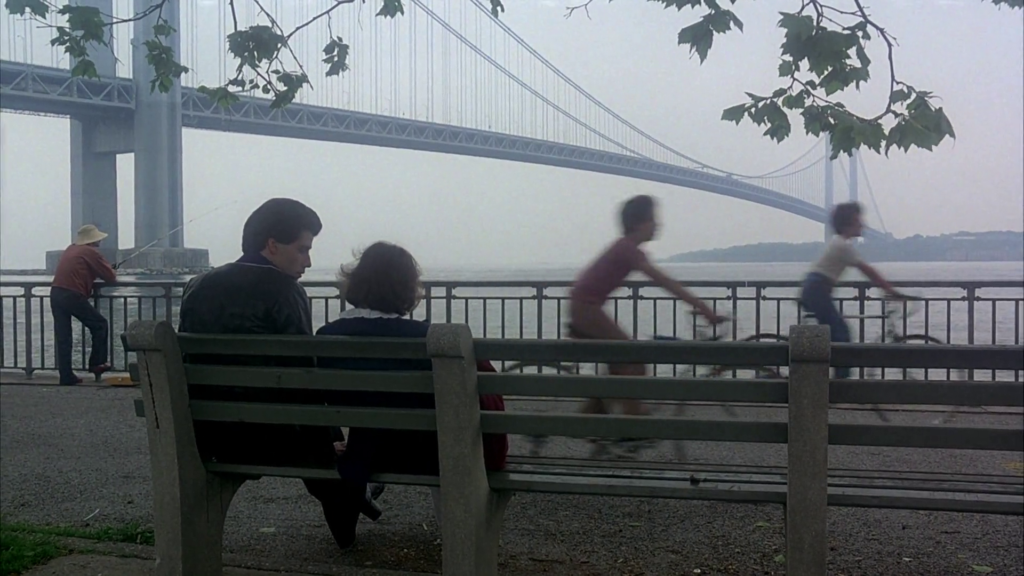
2 thoughts on “Saturday Night Fever (1977)”
Rewatch (7/28/22); first viewing since its initial release. Not must-see.
Perhaps unexpectedly, this film turned out to be a box office hit that made critics enthusiastic as well. However, seeing the film again now, I don’t feel that time has been particularly kind to it.
It helped popularize the disco craze – which is now seen as somewhat quaint (at least the way it’s depicted here; and Travolta and Gorney are certainly no Fred and Ginger on the dancefloor). Although there isn’t much of a plot – it’s more of an overview of the lifestyle of a certain kind of young man in the ’70s – the script attempts to build to a climax which feels rather tacked-on for the sake of added drama.
Badham’s direction is solid-enough and clear in its presentation of this particular culture. But the film is ultimately little more than a date-night flick. (Peary awarding Travolta ‘Best Actor’ is downright silly.)
The 1980 film ‘Airplane!’ includes a terrific ‘SNF’ parody sequence.
A key film of it’s era and one that is still highly regarded in 2023 so definitely a must see film for film buffs.